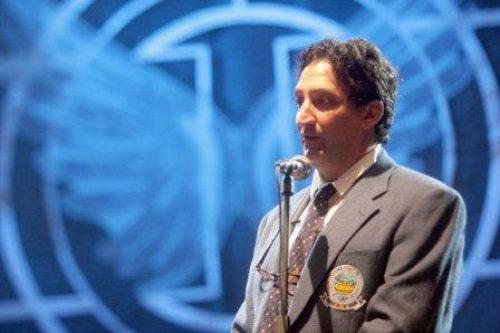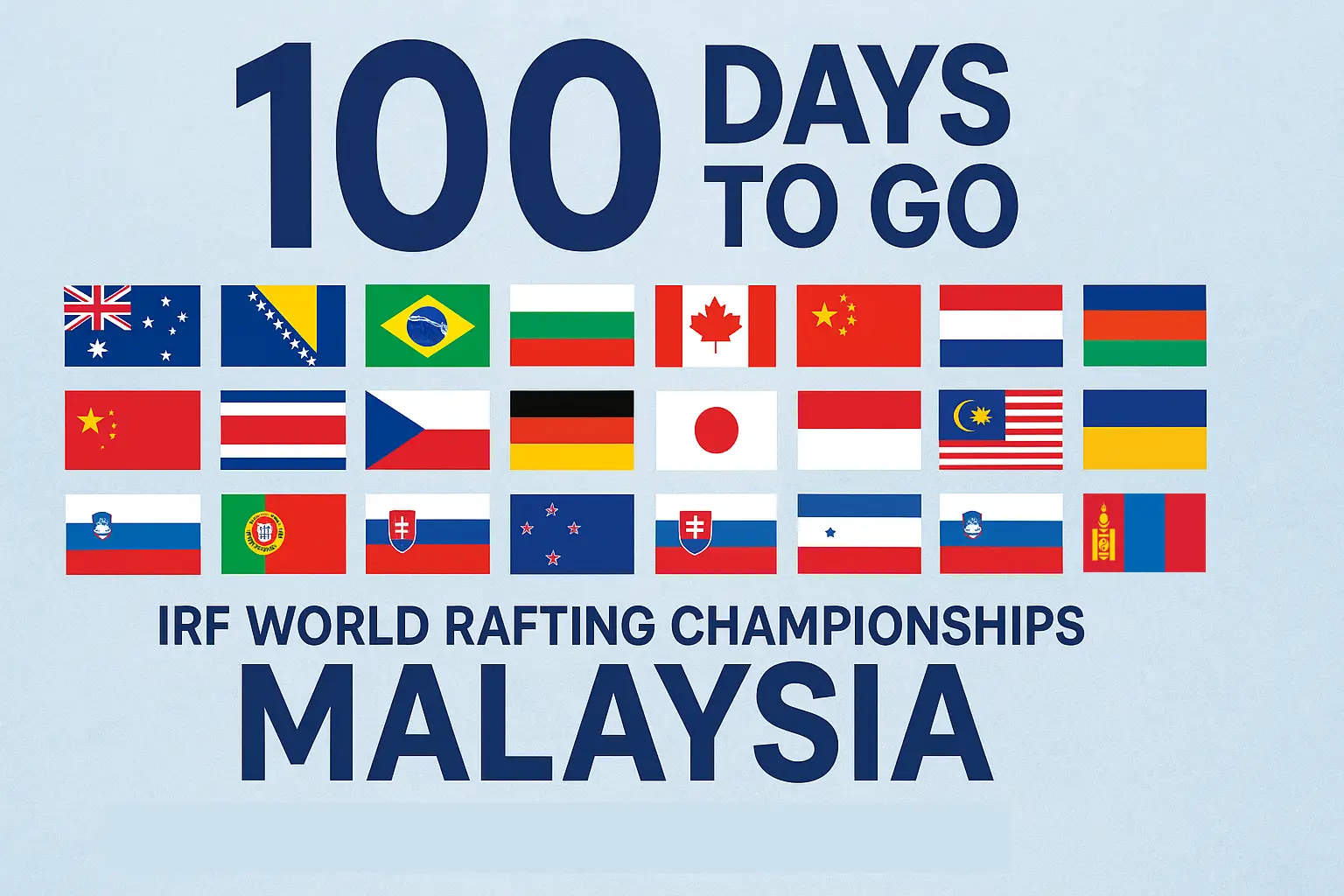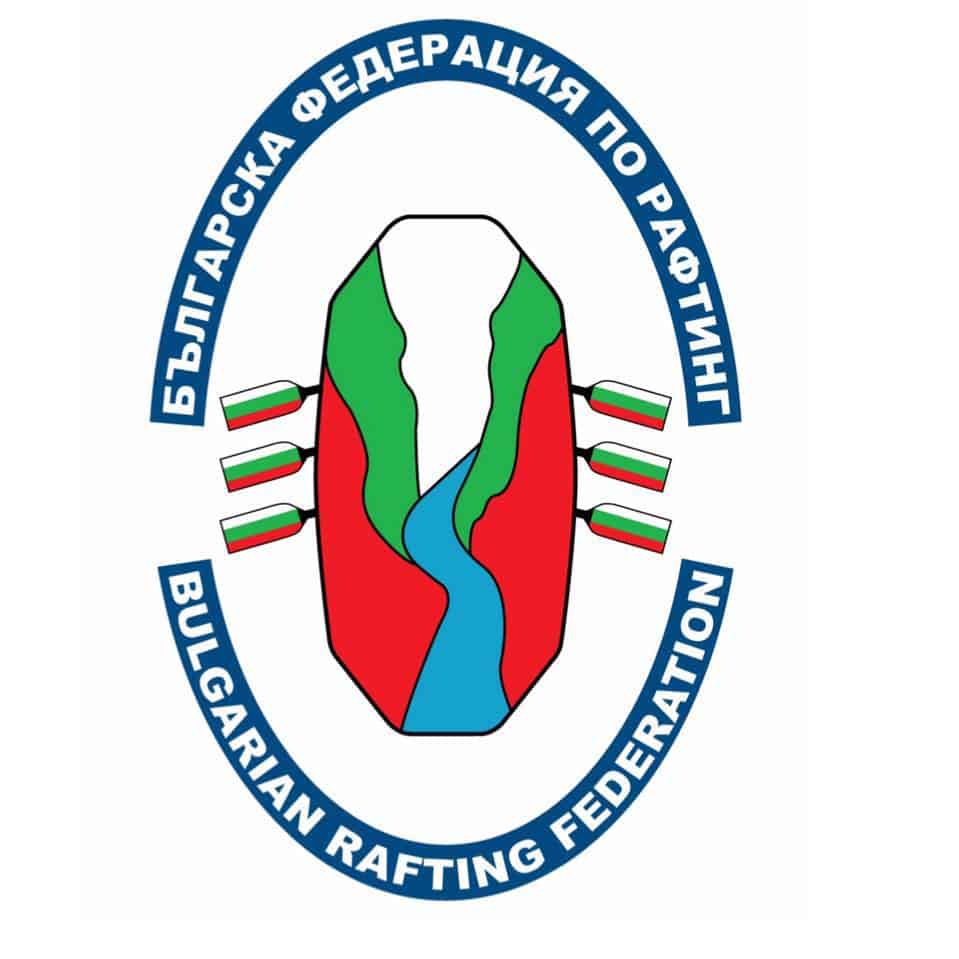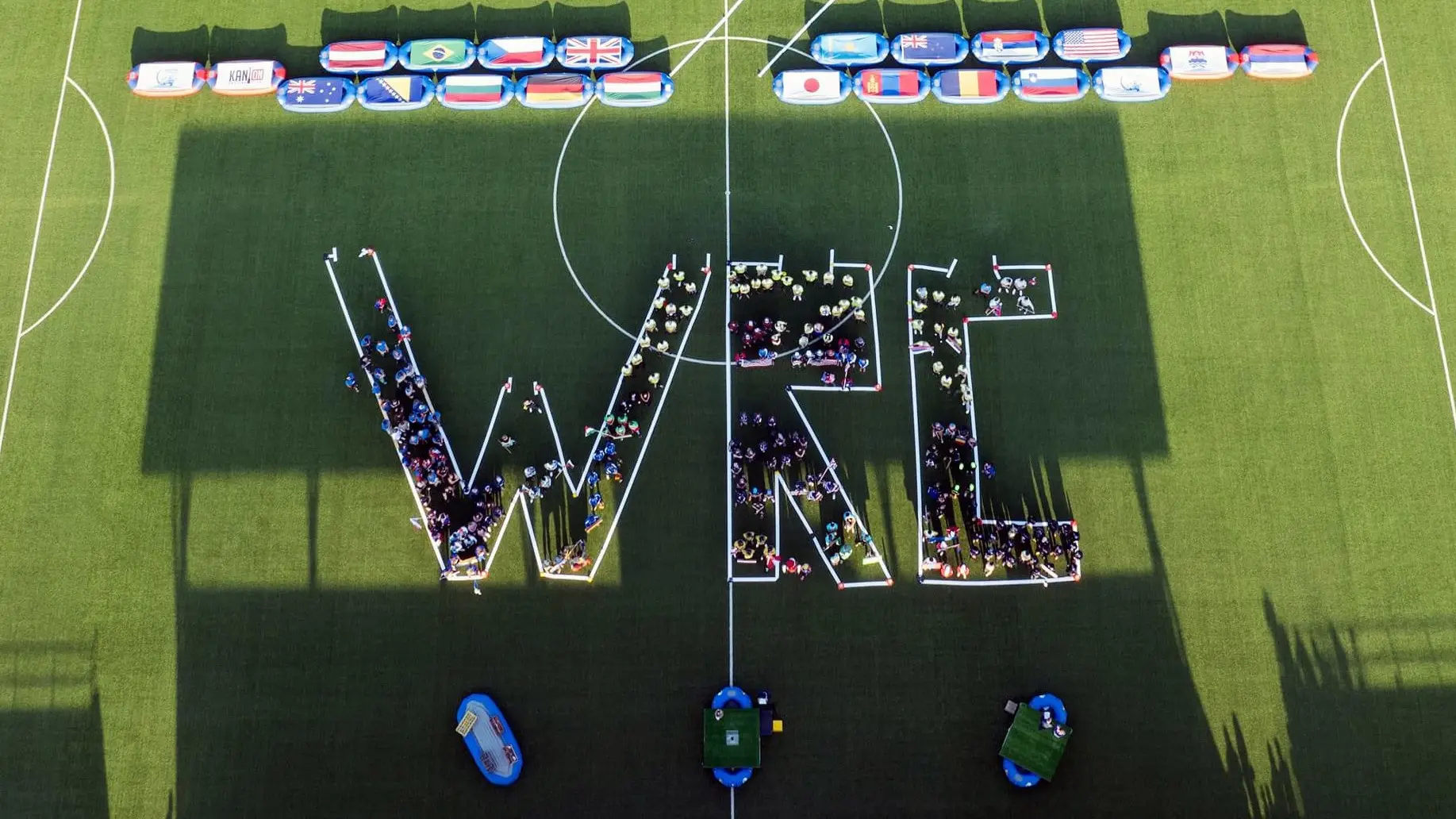By Shannon Farley

Commending his decades of involvement, achievements, and integral role in the formation and development of the International Rafting Federation (IRF), Rafael Gallo has been nominated as the first Honorary President of the IRF.
The new position was proposed by the current IRF President Joe Willis Jones, and approved by the IRF Board of Directors as an annex to the IRF Bylaws. The annex states that “The (IRF) Congress may bestow the title of ‘Honorary President’, or ‘Honorary Member’, respectively, upon any former President or member of the Executive Committee for meritorious service to rafting and the IRF … Honorary Presidents shall primarily serve as an IRF Ambassador.” The nomination of Mr. Gallo will be considered for ratification at the IRF Congress in March 2019 in Australia during the next World Rafting Championships.
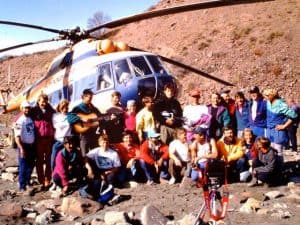
President Jones is pleased to have the honour of nominating Mr. Gallo in recognition for his years of commitment and service. “Everyone who takes part in rafting sport today is beholden to the dedication and effort of those that worked to create it. Rafa’s years of service to rafting and to the IRF put us all in his debt. Without Rafa, it is likely that the IRF would not exist.”
Gallo is one of the original founders of the IRF. He served as the IRF’s first Vice-president, alongside President Peter Micheler, from 1997 to 2006, and then took over the IRF presidency from 2006 to 2013. Gallo has helped improve rafting safety rules and guide training around the world. He was also one of the first assessors for the IRF, which is the highest level for river guide training certification that allows him to certify instructors, who in turn can certify rafting guides.
“As a founding member of the IRF, Rafa was very integral to waking everyone up to the need for an international governing body for rafting. He has been a strong component of the IRF since it was created and having him as an Honorary President will ensure that the IRF can continue to benefit from his years of experience in the international rafting world,” said Sue Liell-Cock, IRF Secretary General.
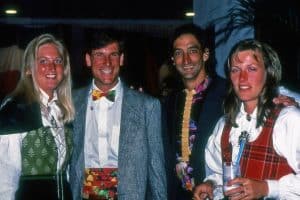
“It feels great to have become part of innovation in the rafting world through my whitewater rafting company, Rios Tropicales, in Costa Rica, and become such a leader. I feel lucky to have been in that historic era at the beginning and had the opportunity to lead such an important organization as the IRF with so many people from around the globe. It was a joining of minds from all over the world,” said Gallo. “The IRF has brought rafting to a more competitive level. You see people striving to be athletes and not just river guides, and they love rafting,” he added.
How the IRF began
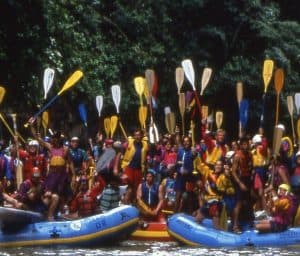
Starting with the first Project RAFT event held on the Chuya River in Siberia during the 1989 Chuya Rally, people came from all over the world for the first time to compete together in river rafting. Called “Russians and Americans for Teamwork”, the project was initiated by Russian and American rafters to override the political animosity between the two nations at the time, and to join together in the sport of rafting. The Chuya Rally proved to be a catalyst event that changed the world of rafting forever because of the contacts made and the friendships forged.
President Jones recalls first meeting Gallo at the Chuya Rally where they both participated as rafting athletes representing their respective countries. “Rafa and I became fast friends and he invited me to Costa Rica to work as a river guide and guide trainer for his newly-formed rafting company. The ‘Pura Vida’ lifestyle of Costa Rica and the Project Raft ethos was fully merged at Rios Tropicales, and it attracted some of the best river guides in the world to work a season or two with Rafa’s company. ”
This first “World Rafting Championship” was replicated in 1990 on the Nantahala River in North Carolina, in 1991 on the Reventazón and Pacuare Rivers in Costa Rica, and on the Coruh River in Turkey in 1993. After that, it evolved into the Camel Whitewater Challenge from 1995 to 2001.
As international rafting competitions grew, drawing up to 50 teams to compete in Slalom and Down River events, there became a need for an official body that could represent and unite the various international rafting interests.
 It was at the 1994 World Championship hosted on the Dora Baltea River in Italy that Rafael Gallo and Peter Micheler saw the necessity to form an international rafting organisation that could represent all competitors, guides, and aspects of rafting.
It was at the 1994 World Championship hosted on the Dora Baltea River in Italy that Rafael Gallo and Peter Micheler saw the necessity to form an international rafting organisation that could represent all competitors, guides, and aspects of rafting.
“People were having a lot of fun competing against one another but it needed to be organized much better,” said Gallo. “Everyone showed up to this World Rafting Championship and discovered there were no set rules. It was very chaotic. The rafts were different sizes, the rules kept changing along the way, and the organisers had no clear idea as to how to run an event. We knew if international raft competition was going to survive, we needed to change the model and implement an organizational structure and rules for raft racing.”
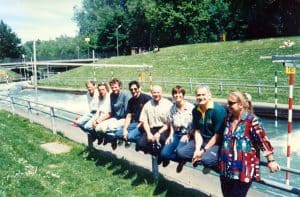
The founding group – Lee Porter, Peter Micheler, Rafael Gallo, Tony Hansen, Sue Liell-Cock, Neil Baxter, Glenn Lewman, Zeljko Kelemen and Thomas Karas – met in 1997 at the Augsburg Eiskanal in Augsburg, Germany – Micheler’s home base and site of the 1972 Summer Olympics’ canoe slalom event. There, they drafted the first raft race rules and organisation statutes, and in October of that year the IRF was officially launched at the 1997 Camel White Water Challenge (CWWC) event.
The first official IRF World Championship – run jointly with the CWWC – was held in Costa Rica in 1998 on the Class 5 section of the Reventazón River, hosted by Gallo and Rios Tropicales. This is where the rules to govern raft racing were finalized. Later, in 2001, the IRF World Championships separated from the CWWC.
20 Years of Success with the IRF
As the IRF competitions developed, so did the need to create a universal training system for raft guiding.
In 1999, at the IRF World Championship on the Orange River in South Africa, where Gallo acted as the first chief judge of an IRF event, he was involved in creating a guide training and education system that would be compatible for river rafting anywhere in the world.
Receiving Carbon Neutral certificate for WRC 2011
“We wanted to create a method of assessing and certifying the basic skills and knowledge that a rafting guide should have,” Gallo said. “We adopted it right away in 1999 with our guides in Costa Rica.”
Gallo again was chief judge for the IRF World Championships in 2005 in Ecuador and in 2007 in South Korea. He hosted a second IRF World Championship in Costa Rica in 2011 which was the first ever Carbon Neutral World Championship in any sport.
“By this time, IRF competitions were not festivals. They were full of pro athletes. People were training, getting sponsors and

taking it very seriously,” said Gallo. “It was great. We were accomplishing our objective to create a world-class competition. We were already positioning ourselves to get rafting into the Olympics.”
In 2009, Gallo was inducted into the International Whitewater Hall of Fame for being an advocate for conservation and a leader in river rafting in the world.
The future of the IRF
“Having ambassadors around the world is very valuable to promote the IRF and put it forward in the right places. The IRF Committees can turn to Rafael for advice and assistance in areas where his knowledge or expertise can assist,” said Liell-Cock.
“For me, becoming an honorary president is a great way to continue participating in the future of the IRF,” noted Gallo. “With 20-plus years of experience, I can be a mentor who has ‘been there and done that’ to help the new leaders who are guiding the rafting world as it is growing and growing.”

